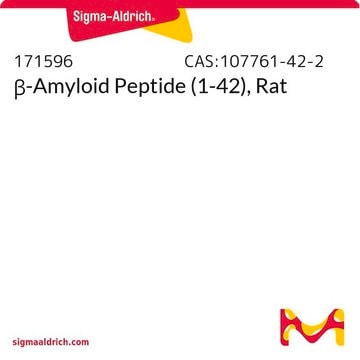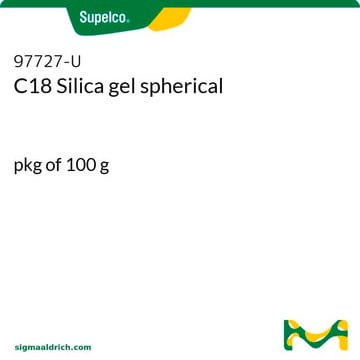12-242
Glycogen Synthase Peptide-2
Ala21, negative control for GSK-3β
Sign Into View Organizational & Contract Pricing
All Photos(1)
About This Item
UNSPSC Code:
12352204
eCl@ss:
32160405
NACRES:
NA.42
Recommended Products
Quality
Routinely evaluated for use as a negative control for assay of GSK-3β (Catalog # 14-306) activity in a phosphorylation assay. Not to be used as a substrate for GSK3.
Legal Information
UPSTATE is a registered trademark of Merck KGaA, Darmstadt, Germany
Storage Class Code
11 - Combustible Solids
WGK
WGK 1
Flash Point(F)
Not applicable
Flash Point(C)
Not applicable
Certificates of Analysis (COA)
Search for Certificates of Analysis (COA) by entering the products Lot/Batch Number. Lot and Batch Numbers can be found on a product’s label following the words ‘Lot’ or ‘Batch’.
Already Own This Product?
Find documentation for the products that you have recently purchased in the Document Library.
M P Coghlan et al.
Chemistry & biology, 7(10), 793-803 (2000-10-18)
Glycogen synthase kinase-3 (GSK-3) is a serine/threonine protein kinase, the activity of which is inhibited by a variety of extracellular stimuli including insulin, growth factors, cell specification factors and cell adhesion. Consequently, inhibition of GSK-3 activity has been proposed to
Regulation and functions of the glycogen synthase kinase-3 subfamily.
Woodgett, J R
Seminars in cancer biology, 5, 269-275 (1994)
S R Kimball et al.
The Journal of biological chemistry, 273(47), 30945-30953 (1998-11-13)
The present study was designed to investigate the mechanism through which leucine and histidine regulate translation initiation in L6 myoblasts. The results show that both amino acids stimulate initiation and coordinately regulate the activity of eukaryotic initiation factor eIF2B. The
Our team of scientists has experience in all areas of research including Life Science, Material Science, Chemical Synthesis, Chromatography, Analytical and many others.
Contact Technical Service







